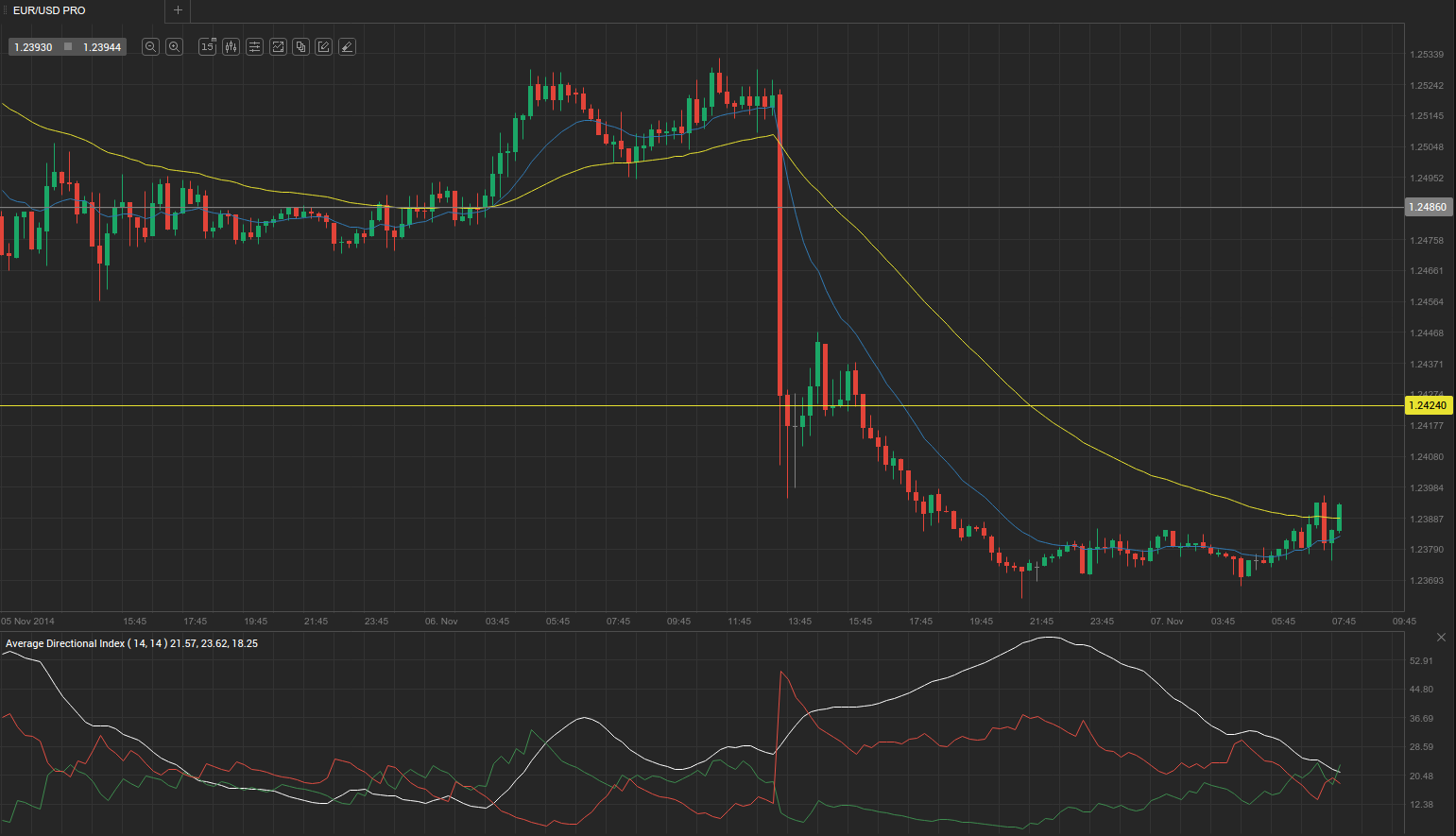Yesterday’s trade saw EUR/USD within the range of 1.2535-1.2363. The pair closed at 1.2375, losing 0.89% on a daily basis.
At 8:14 GMT today EUR/USD was up 0.18% for the day to trade at 1.2394. The pair held in a daily range of 1.2368-1.2397.
Fundamental view
Eurozone
Germany’s statistics agency Destatis reported that that the nation’s exports rose by 5.5% on a monthly basis in September, rebounding from a 5.8% contraction in August. Analysts had projected a moderate 1.9% jump.
Imports also rose sharply, by 5.4%, offsetting a 1.3% contraction a month earlier. As a result, the leading EU economy’s trade surplus widened to €18.5 billion in September from €17.5 in August, matching analysts’ prediction.
The statistics agency also reported that Germany’s industrial output accelerated by a slower-than-expected 1.4% in September on a monthly basis after it contracted by an upward-revised 3.1% in the preceding month from initially estimated at -4.0%. Analysts expected a 2.0% jump.
The index reflects the change in overall inflation-adjusted value of output in sectors such as manufacturing, mining and utilities.
France’s Ministry of Finance reported that the country’s September trade balance posted a smaller-than-projected deficit of €4.7 billion, narrowing from a downward-revised €5.0 billion a month earlier.
A separate report by the French statistics agency INSEE showed that the nation’s industrial production in September was flat on a monthly basis after it contracted 0.2% a month earlier, compared to analysts projections for an identical decline.
Spain’s industrial production, on the other hand, grew by an annualized 1.0% in September after it expanded 0.3% a month earlier. This was the 11th straight month of sector expansion.
United States
Employers in all sectors of economy in the United States, excluding the farming industry, probably added 231 000 new jobs in October, according to the median forecast by experts, after a job gain of 248 000 in September.
The non-farm payrolls report presents the total number of US employees in any business, excluding the following four groups: farm employees, general government employees, employees of non-profit organizations, private household employees. Despite its volatility and the possibility of large revisions, the non-farm payrolls indicator presents the most timely and comprehensive reflection of the current economic state. Total non-farm payrolls account for 80% of the workers who produce almost the entire Gross Domestic Product of the United States. In case of a larger-than-expected gain in jobs, the US dollar would receive a boost.
Average Hourly Earnings probably rose 0.2% on a monthly basis after remaining flat in September, while average weekly hours were unchanged at 34.6.
The rate of unemployment in the country likely remained unchanged at 5.9% last month. It represents the percentage of the eligible work force that is unemployed, but is actively seeking employment.
A person who is not classified as employed or unemployed is excluded from the statistics. One counts as unemployed, if he falls in all of the following categories: he/she was unemployed during the last week; he/she is able bodied; he/she has been seeking employment for a period of at least four weeks, which end during the week when the research is conducted. People, who have been laid off and are awaiting to be hired again, are also classified as unemployed. In case the unemployment rate met expectations or even fell further, this would have a bullish effect on the greenback. The Bureau of Labor Statistics will release the official employment data at 13:30 GMT.
At 15:15 GMT Fed Chair Janet Yellen is to take a statement. Yellen took office as Chair of the Board of Governors of the Federal Reserve System on February 3rd 2014 for a four-year mandate ending on February 3rd 2018.
Technical view
According to Binary Tribune’s daily analysis, the central pivot point for the pair is at 1.2424. In case EUR/USD manages to breach the first resistance level at 1.2486, it may continue up to test 1.2596. In case the second key resistance is broken, the pair may attempt to advance to 1.2658.
If EUR/USD manages to breach the first key support at 1.2314, it could continue to slide and test 1.2252. With this second key support broken, movement to the downside may extend to 1.2142.
The mid-pivot levels for today are as follows: M1 – 1.2197, M2 – 1.2283, M3 – 1.2369, M4 – 1.2455, M5 – 1.2541, M6 – 1.2627.
In weekly terms, the central pivot point is at 1.2594. The three key resistance levels are as follows: R1 – 1.2703, R2 – 1.2882, R3 – 1.2991. The three key support levels are: S1 – 1.2415, S2 – 1.2306, S3 – 1.2127.






